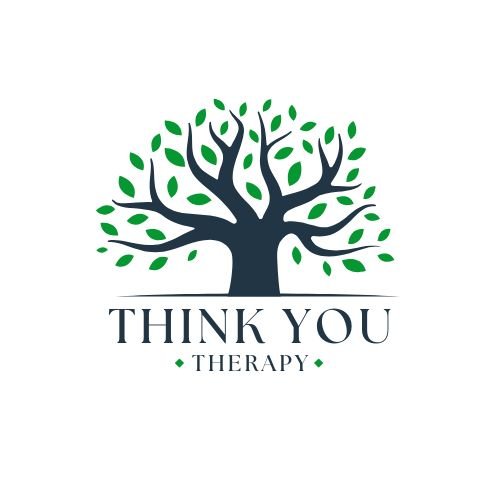-
Play Therapy
A globally recognised and evidence-based approach that supports children’s emotional development and mental wellbeing. Rooted in psychodynamic and humanistic traditions, it offers a child-friendly way to explore thoughts, feelings, and experiences through play—their natural language.Children are provided with a safe and supportive environment where they can express big emotions, work through challenges and build confidence at their own pace. With a strong focus on the therapeutic relationship, it nurtures emotional growth, resilience, and self-awareness, helping children to thrive at home, in school and in their relationships.
A variety of creative and expressive techniques are used to support this process, including therapeutic storytelling, art, role play, music, movement, sand play and more—each tailored to the individual needs of the child.
Registered Play Therapist
Filial Therapy
A powerful approach that strengthens the parent-child relationship by involving caregivers directly in the therapeutic process. With guidance and support from a trained therapist, parents or carers learn therapeutic play techniques to use with their child at home. This approach enhances emotional connection, builds trust and supports the child’s emotional wellbeing—while also empowering parents with skills to respond more confidently to their child’s needs.Acceptance and Commitment Therapy
ACT is a modern, evidence-based approach that helps individuals manage difficult thoughts and emotions while building a rich, meaningful life. Instead of avoiding or fighting inner struggles, ACT supports you in accepting them with compassion and focusing on what truly matters to you. Through mindfulness, values-based action and psychological flexibility, ACT empowers you to move forward with clarity, resilience and purpose.Dyadic Developmental Psychotherapy
DDP is a relationship-focused approach designed to support children and young people who have experienced trauma, attachment disruptions or early relational challenges. Grounded in the principles of safety, connection and trust, DDP involves both the child and their caregiver in therapy, using a playful, accepting, curious and empathetic (PACE) attitude. This approach helps strengthen the parent-child relationship, supports emotional healing and promotes secure attachment and long-term wellbeing.Dialectical Behaviour Therapy
DBT is an evidence-based approach designed to help individuals manage intense emotions, build healthier relationships and develop practical coping skills. Combining mindfulness with strategies for emotion regulation, distress tolerance and interpersonal effectiveness, DBT supports individuals in finding balance between acceptance and change. It's particularly helpful for those experiencing emotional dysregulation, anxiety or difficulties in relationships.EMDR
Eye Movement Desensitisation and Reprocessing (EMDR) is a structured, evidence-based therapy designed to help individuals heal from traumatic experiences, distressing memories and overwhelming emotions. By using bilateral stimulation—such as eye movements or tapping—EMDR supports the brain in reprocessing difficult experiences, reducing their emotional intensity and helping individuals move forward with greater calm, clarity and resilience. It is effective for both children and adults dealing with trauma, anxiety and a range of emotional challenges. -
As a social worker and registered therapist, I’m passionate about supporting individuals living with disability to build confidence, connection, and independence. The NDIS recognises social workers as allied health professionals who can deliver therapeutic supports that are both reasonable and necessary to help participants reach their goals.
At Think You Therapy, I offer a range of evidence-based approaches designed to enhance emotional wellbeing, strengthen relationships, and support everyday functioning. This may include therapy to build resilience, increase social participation, or develop practical coping and problem-solving skills.
I also assist participants and families in navigating systems, linking with supports, and removing barriers that may be getting in the way of living a fulfilling and meaningful life. My approach is collaborative and person-centred, focusing on each individual’s strengths, goals, and unique story.
-
Social Work Supervision & Mental Health Social Work Supervision
With over 18 years’ experience I am able to offer a supportive and reflective space for social workers at all stages of their career. With extensive experience across child protection, foster and kinship care, and both public and private mental health settings, I bring a well-rounded, trauma-informed perspective to supervision.Play Therapy Supervision
With over seven years of experience as a Play Therapist, I offer supervision grounded in child-centred, trauma-informed and attachment-focused principles.Clinical Supervision $190 p/h
-
Mental Health Care Plan
To be eligible to receive psychological services under Medicare, a person must gain a referral from their GP. Rebates under a MHCP: $87.25NDIS
If you are self-managed or plan-managed, sessions can be funded through your NDIS package. Please contact us to discuss availability.Private Therapy
50-minute Therapy session which is privately funded. This session can be in-person, via telephone or video call.Private Health
HCF
Bupa
Teachers Health Fund
Doctors Health
St Lukes Health
Australian Regional Health Group Ancillary Provider Accreditation Service.It is advised that you discuss options directly with your fund. Please note that if you seek a rebate through private health, you cannot claim a Medicare rebate for the same session.
Standard Session fee $210

